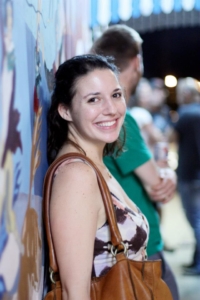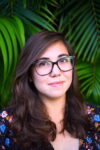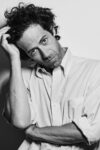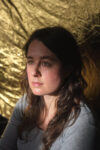 In February of ’09, I was one of many who felt they’d discovered something phenomenal when reading Mary Miller’s Big World. Her legion of fans sprung up all over North America like some huge, cosmic, simmering Jiffy-Pop: the uniformity of praise for her work on message boards, at writer’s conferences, and on Goodreads showed how many of us were clamoring for more Miller. We were all drawn to the blunt beauty of her subjects — everyday folks who felt locked into small, lonely lives. All the more surprising was discovering such a stellar collection put out by a relatively unheard of (at the time) press, the lit journal Hobart’s Short Flight/Long Drive Books. We expected a release by Miller from a major publisher at any minute. But the years went on, short stories trickled out as she attended the University of Texas as a Michener Fellow, and Big World went into its third printing. Her long-awaited new work, her first novel, The Last Days of California, finally arrives this month from W.W. Norton.
In February of ’09, I was one of many who felt they’d discovered something phenomenal when reading Mary Miller’s Big World. Her legion of fans sprung up all over North America like some huge, cosmic, simmering Jiffy-Pop: the uniformity of praise for her work on message boards, at writer’s conferences, and on Goodreads showed how many of us were clamoring for more Miller. We were all drawn to the blunt beauty of her subjects — everyday folks who felt locked into small, lonely lives. All the more surprising was discovering such a stellar collection put out by a relatively unheard of (at the time) press, the lit journal Hobart’s Short Flight/Long Drive Books. We expected a release by Miller from a major publisher at any minute. But the years went on, short stories trickled out as she attended the University of Texas as a Michener Fellow, and Big World went into its third printing. Her long-awaited new work, her first novel, The Last Days of California, finally arrives this month from W.W. Norton.
The Last Days of California episodically follows the protagonist, Jess, as she sits in the backseat and sleeps in sad off-the-highway hotels, during her Southern family’s journey to California for an influential preacher’s prophesied Rapture. Her father, who has recently lost his job, wants to be in the right time zone when all the sinners explode into fireballs and the righteous ascend to the heavens. Jess, however, can’t quite picture it, and is also the only one in the family who knows about her older sister’s recent positive pregnancy test.
Selling a few dozen copies of Big World had been a little victory for me as a bookseller at an indie bookstore in Chicago, and I was glad to have a chance to chat with Miller about her long-awaited novel.
Brandon Will: Did a personal history of road trips spark the setting for The Last Days of California?
Mary Miller: Harold Camping predicted that the rapture would occur on May 21, 2011, and there were all of these people doing all of this extreme stuff (like giving away their life savings and leaving their families to go out and “warn people”). One morning, I read a newspaper article about a man who took his family on a 3,000-mile road trip to await the rapture in Pacific Time. There weren’t any details and I was really curious about these people, what their lives were like. What would make a man do this? What did his family think? As far as the setting, I used an area of the country I know well. I’d recently driven from Austin, where I live, to Jackson, Mississippi, my hometown, and wanted to describe some of the things I’d seen. Texas is its own curious world; it would secede if it could, and there are organizations that are actively trying to make this happen.
I also scoured my brain for every oddball thing I’d ever seen while driving, like a man giving camel rides in front of a dollar store, or an old country man pushing a lawnmower across a highway as if he were in his backyard. Once I started thinking, there were so many things I wanted to describe: driving through storms so heavy I thought I would die, how my father is always pointing out deer and turkeys on the side of the road that he wants to show me — and how I often miss them, and we’re both disappointed.
The sisters’ love for ’80s movies lends itself to the setting, places that have more or less stayed the same for decades — like fast food restaurants. Why did you choose to set it in the present, and to include this kind of connection to decades past?
In the first scene, Jess looks at the paper and sees that Honey, I Shrunk the Kids will be coming on that night and she gets all excited. Perhaps when I wrote this scene, Honey, I Shrunk the Kids was about to come on and I got excited. That’s probably what happened, though I can’t remember. I love ’80s movies. What could possibly be more amazing than Sixteen Candles, Less Than Zero, Better off Dead? This is one thing I wondered about, actually — would teens today be obsessed with something as obscure (to them) as ’80s movies? I talked to some friends with teenage children, and mostly what I found is that teens and young adults today actively seek out new music, films, information; the more random or obscure, the better. I have a friend who is 22 and he knows more about more things than I ever will. He’s also a great writer. I am very suspicious of him.
Both Jess and her older sister are teenagers. Do you picture younger readers reading this novel? How much do you think about audience when writing?
I would love for young readers to find the novel; they would be my truest critics. It’s been a long time since I’ve been a teen, but I gravitate toward writing in the voice of teens and young adults and want to do it as authentically as possible. Most of my favorite books are also told from these perspectives.
I don’t ever write for a particular audience. I write to entertain myself, to see what I’m capable of. I used to think that my audience would be women like me but after the publication of Big World, it was clear that this wasn’t necessarily the case. Many of the people who love Big World the most are young men, which surprised me. Men do not fare well in my stories. They’re often violent and thoughtless, and it’s not clear that they’re trying to do their best — which we want out of characters, because we want this in life.
The book is so full of those little moments that in life we often think aren’t worth telling, but when articulated, tell everything — do you consciously catalogue them? Are you a journaler? Or do you free-write? And do you write chronologically, or jump to what takes your attention?
I don’t journal or free-write. Occasionally I’ll jot things down, ideas or thoughts I want to include in something. I’ll be standing in line to use the bathroom and realize that I hardly had to go until I was waiting in line, at which point I can barely hold it, and I’ll make a note of that — simple everyday stuff that most people can relate to but perhaps don’t think about (and why would they?). I try to notice things, though I don’t feel like I’m all that observant, really. But maybe that’s just a lie I tell myself so I can ignore people and the world when I want to and not feel so badly about it.
I always write chronologically. I know some writers jump around — they write their endings first, or get stuck on a scene so they move three scenes ahead — but I can’t do this. I feel like this would mess me up, or mess the characters up. If the characters haven’t finished their lunch, why am I writing about the following morning? Also, if you don’t know what happened between lunch and the following morning, how can you authentically write about it? What would you miss, get wrong?
You don’t shy away from messy thoughts about religion and death. What’s one of the most horrifying thoughts that you’ve had, which you try to explore or express through the characters’ experiences?
As a kid, I remember being terrified about the idea of forever, so I gave this fear to Jess: “My biggest fear was that things would go on forever and there would never be any end. The idea of forever terrified me, even if we were in heaven and everything was great there. Surely, it would have to come to an end at some point. There would have to be something else. When I wanted to scare myself, I’d lay in bed and think forever and ever and ever and ever and ever until I thought I might go crazy.”
I recall doing exactly this, lying in bed and repeating the word “forever.” Death didn’t seem so bad, really, but the whole “world without end” thing scared the hell out of me. I’ve always been the kind of person who craves an ending. This has obviously not served me very well in life.
How did you balance or alleviate that fear, within the novel?
I tried to balance Jess’s focus on religion and death with the mundanity of everyday life. She thinks a lot about french fries and honeybuns, what she wants to watch on TV. She’s also hypercritical of herself and others, constantly looking for the flaws in people, which keeps her occupied and grounded in the world. At the beginning of the novel, Jess’s horoscope says that she is on “an information-gathering mission of sorts,” so she’s often thinking of her mission, gathering information about the people she comes into contact with.
What was your biggest challenge in writing this novel?
The biggest challenge was the revision process, for sure. I wrote a draft over the course of four or five months, the bulk of it over one summer. But the revision process took nearly two years. I thought it would never end. Rereading it now, there are still so many things I’d like to change on the sentence level. Sometimes I feel like things will never, ever be perfect and so I give up. With my short story collection, there was more time to perfect the language. First you write a story and edit it and then someone publishes it (hopefully) and there are more chances to edit it/make it better, and then it’s collected in a book form, so there’s another opportunity. Stories are so much smaller and more manageable. Perhaps the novel would have been easier if I had had more chapters.
Could you tell us a little about your transition from short story writer to novelist?
I’d pretty much given up on the idea of writing a novel and would still be very uncomfortable referring to myself as a novelist. I’d come to terms with the fact that I was “just a short story writer.” When I began The Last Days of California, though, I knew it would be long because the family was in western Louisiana and their destination was California. From the beginning, there was momentum and tension — they hadn’t been making good time, they were behind schedule. I felt like it was my job to keep them moving. I felt a responsibility to them right away.
There was a point at which I thought about giving up, but couldn’t. I wanted to see how it would end. I also knew that it might be my only opportunity to complete something decent that was longer than 7,000 words, and if I didn’t take it, I would always regret it.
Who were some influential figures to the forming of this story: mentors, idols, spirit guides?
I started working on this novel between my first and second years at the Michener Center, so it was great timing. I received a lot of help from various professors, including Michael Adams, Elizabeth McCracken, and Peter LaSalle, as well as my peers in workshop. Michael Adams must have read it three or four times and gave me invaluable advice and guidance. I definitely didn’t do it all on my own. That being said, nobody can ever do your work for you. It’s always yours and no one else can make the decisions; no one can write it for you.
I think it was Jennifer Pieroni, a friend and writer, who sent me some religious stuff in the mail — a tract, a prayer rug with Jesus’ face on it — and I relied on those when I felt stuck. I imagined sitting in the car with a stack of tracts under my feet. I unfolded the prayer rug and knelt on it, looked at Jesus’ closed eyelids.
What was the original title, again, that you mentioned at AWP? I remember it had an exclamation point and I found that very exciting. Why was that title dropped and this one used?
The original title was King Jesus Returns! I was fond of it because it had been the working title for so long, but I’m glad my editor nixed it. I don’t know how the novel would have fared in the world as King Jesus Returns! The book cover would have had to be very ironic or something. It might’ve been shelved in the wrong section where religious people would buy it by mistake and curse me. My editor and agent and I brainstormed, making lists of possible titles, but I wasn’t into our options: Rapture Road, Rapture Roadtrip, etc. When someone suggested The Last Days of California, I knew it was the right one. I made all sorts of arguments for why it fit, why it was perfect. I think the word “California” is so powerful. It’s not like, say, Nebraska, where maybe you get an image of corn but that’s about it. “California” is an entire novel in and of itself.
What’s the best thing you feel writers can do, and what do you aim to do through your fiction? What about writing made you choose to commit to it and persevere with it?
I want people to read something I wrote and think, Oh, I’ve felt that way before. I think of it as a lot like what a comedian does. They point out things we’ve seen/felt/done but haven’t articulated or even been conscious of. I want to write compelling situations and characters, as well, but mostly I want to hold up a mirror for people to see themselves, which is also what I desire most out of fiction.
As far as what made me commit to writing, I simply have no other talents. People think I’m exaggerating when I say this but it’s basically true. It’s possible I would have made a good psychologist. (I got a B.A. in psychology and always imagined I’d go on to get my Master’s. I didn’t.) Before I started writing, I was a quitter. I quit everything. My history of quitting is long and varied.
Brandon Will attends the New School’s Writing for Children and Young Adults MFA program and has worked as an indie bookseller specializing in small press and young adult books for many years. He currently works at the Community Bookstore in Park Slope.
This post may contain affiliate links.







